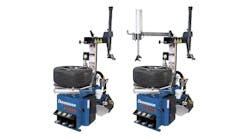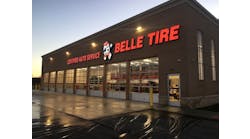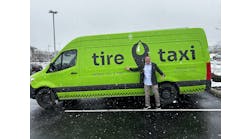Consumer Reports (CR) just released results from its survey on the tire purchase experience. Information on everything from what drives tire purchases to the satisfaction with tire buying was collected from more than 48,500 of its subscribers.
Most interesting to me was a ranking of the 35 retail chains at which the respondents bought their tires. Were independent tire dealerships ranked first? Yes and no. In addition, when analyzing the results I came away with the impression the comparisons were not always apples-to-apples.
All the major distribution channels were represented, including mass merchandisers, warehouse clubs, company-owned stores, car dealerships and muffler shops. Online sellers such as Tire Rack and Amazon.com also made the list.
Independent tire dealers were listed in different ways. Discount Tire and the large regional chains were ranked separately; others were included in a blanket group, Independent retailers.
There was a five-way tie for first. Costco, Tirerack.com, Les Schwab Tire Centers, Discount Tire and Independent retailers each scored 90 points. That is the order in which CR listed them.
Tied for second with 89 points were Fountain Tire, based in Edmonton, Alberta, Canada; Amazon.com; and Tire Barn Warehouse, based in Rochester, N.Y.
I’m not sure why Tire Rack, Amazon.com and TireBuyer.com (88 points) made the list, because they didn’t even have scores in the majority of the nine categories. Not surprisingly, they received blanks for “quality of installation,” “time for installation” and “waiting area.” A CR spokesperson told me subscribers based those ratings on the installers they used following their purchases, which is a testament to the quality service offered by tire dealers.
Amazon.com also had no ratings for “sales service,” “free perks” and “returns and exchanges.” It did, however — and if this doesn’t scare you, nothing will — receive Excellent marks in “price paid,” “selection” and “checkout ease.” It was the only retailer with top ratings in those three categories.
Let’s face it: Without excessive brick-and-mortar costs, online tire retailers have a price advantage over traditional tire retailers.
Although the average independent tire dealer offers 13 brands, he or she is limited not only by inventory cost and space, but also wholesale delivery. Online retailers are only limited by the tire suppliers who won’t partner with them.
As for checking out online, what could be easier than ordering tires on your smartphone while sitting on your couch? If after that the consumer has any problem getting the tires installed, that reflects on the tire dealer, not the online tire seller.
Online retailers are only limited by the tire suppliers who won’t partner with them.
Tire Rack Inc., by the way, is a different animal. It sells online, but also wholesales to retail tire dealers. It works with more than 8,000 installers. It has a trained customer service department. It also has more than 2.2 million square feet of warehouse space. And if that isn’t enough, it has its own 11.7-acre testing facility. It spends a lot of money to sell and deliver tires B2C and B2B. Modern Tire Dealer considers Tire Rack an independent tire dealer.
I have written in the past about Costco Wholesale Corp.’s progressiveness and its tire-dealer-like approach. It just doesn’t sell tires like a wholesale club, and it even sells online.
Readers of CR seem to agree. Costco had Excellent scores in “price paid,” “quality of installation” and “returns and exchanges.” It also had three Very Good scores, including one for “free perks.” (I wonder if sampling a new line of smoked sausage or cranberry goat cheese would be considered a free perk to a customer buying tires at Costco?)
Based on survey results by category, I would have thought Les Schwab Tire Centers would have finished with the most points: It had six Excellent scores, one Very Good and two Goods, although the two Good scores were for “price paid” and “selection.” No one with 90 points had a Fair or Poor score.
According to the accompanying story by Jeff Bartlett, CR’s deputy automotive editor, 21% of the consumers purchased their tires from smaller independent retailers, which was the highest share percentage for any group or chain. Discount Tire tied for second with Costco at 15%.Car dealerships came in at 14%.
Mass merchandisers did not fare well. Walmart and Sears Auto Centers finished near the bottom, as did Pep Boys. At the bottom were two large independent tire dealers, both of which received only Fair marks in “time for installation.”
I will leave you with three final thoughts. First, the majority of tires were purchased from independent tire dealers, not even counting Tire Rack. Second, the “cost per tire” category listings were not comparable because the vehicles were not comparable, and as such, irrelevant. And third, keep in mind CR’s audience base skews older. ■
If you have any questions or comments, please email me at [email protected].
To read more of Bob Ulrich's editorials, see:
Tire Companies Hope Baseball Advertising Pays Off
Back From the Near Dead: New Jersey Dealers Give It Another Go With My Support
Your Next Great Competitor Is... The Odds Favor Amazon.com Over Sears Automotive




